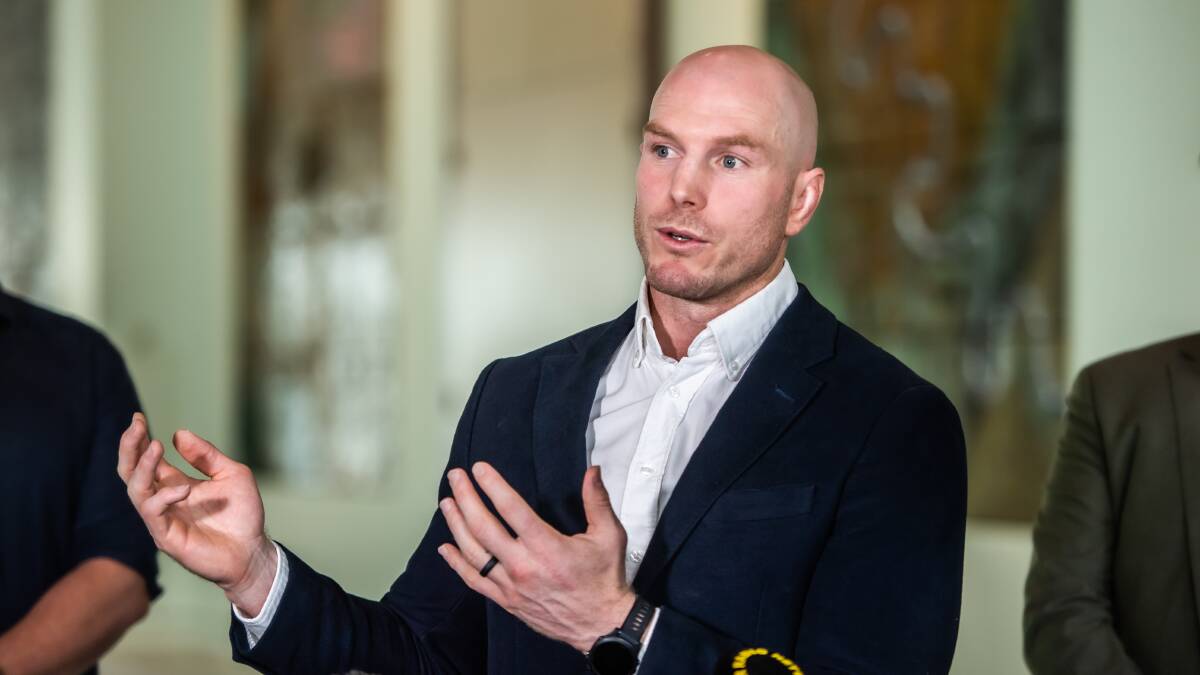The federal government can unlock poverty for over 2 million Australians with the stroke of a pen if it raises JobSeeker and related payments in the forthcoming May budget.
Subscribe now for unlimited access.
or signup to continue reading
Community organisations, including Anti-Poverty Week, today stood with independent senator for the ACT David Pocock to call for an increase in these core payments. Women comprise more than 60 per cent of the 1.4 million adults relying on the lowest payments: JobSeeker, student and parenting payments. They are also caring for over 830,000 children.
Growing up in poverty diminishes children's lives at the time and well into their future. All would benefit from the increase recommended by the independent economic inclusion advisory committee Senator Pocock negotiated to establish late in 2022.
When any of us face sudden catastrophic events - like losing our homes or livelihoods through floods, fires or a pandemic; or when family violence shatters our lives, we rely on social security payments that are tied to the base rate of JobSeeker. It's the critical underpinning of our safety net.
Yet the committee found that JobSeeker and related payments lock people in poverty and create a barrier to paid work for people looking for a job. An increase in JobSeeker will enable more people to take up job opportunities. That is why employers continue to advocate for an increase in JobSeeker, both as members of the economic inclusion advisory committee and at the jobs summit.

Employers realise that people need enough money to feed themselves, buy vital medications and put petrol in their car to get to a job interview and be productive workers.
In 2023, JobSeeker is not just helping people who are unemployed. For many it's a waiting room for the age pension - half of those receiving JobSeeker are aged over 45 years, 28 per cent are aged over 55 years.
This includes older women who may have left violent relationships some time ago. They now find themselves on the verge of retirement at the mercy of the escalating rental crisis and living on payments that force them to go without key medicines, healthy food and to sacrifice heating or cooling their homes.
JobSeeker also serves as hospital waiting room - 43 per cent of recipients have partial capacity to work, mainly because it's now virtually impossible to get disability pension without legal representation. More than 7,000 people on JobSeeker are being treated for cancer as sickness benefit was folded into JobSeeker in 2020.
About 10 per cent of people on JobSeeker are single parents with children aged eight to 15 who should be receiving Parenting Payment Single. The federal government's women's economic equality taskforce recommended restoring their eligibility for parenting payment until their youngest child turns 16 as the first of their six recommendations.
We've got plenty of evidence from the when the coronavirus supplement was paid during the pandemic that the extra money will be used for food, rent and energy bills - the basics.
The ABS Household Survey conducted in September 2020 showed over 70 per cent used the supplement to pay household bills. A survey of recipients conducted by the National Council of Single Mothers and Their Children as part of their 550 Reasons to Smile campaign found the supplement provided hope, health and improved mental health.
Nearly nine in 10 mothers said it reduced stress and anxiety as they could pay their household bills; seven in 10 said their family was healthier due to having enough food to eat and healthier options and nearly two in 3 said they were sleeping better, not waking up due to money stress.
READ MORE:
Australia is facing an unprecedented rental housing crisis - with historic low vacancy rates, skyrocketing rents and increased homelessness. Rent assistance hasn't had a real increase beyond inflation since the GST was introduced in 2000 and then it was only provided as compensation for the impacts of the new tax.
Today there are more than 1.3 million households receiving Commonwealth rent assistance and one-third of these, mainly single parents, have children in their care. The assistance for rent they receive covers only about a quarter of what they pay.
As Australians, we believe in a fair go. We look out for one another and support each other. It's who we are as a nation. As one of the wealthiest countries in the world, we can afford to act to ensure poverty is not inevitable. The budget is a test for this government. Will it stand up for fairness and those doing it toughest, or will it turn its back?
- Toni Wren is the executive director of Anti-Poverty Week which supports the Australian community to have an increased understanding of poverty and to take action collectively to end it. Anti-Poverty Week is October 15-21, 2023.

